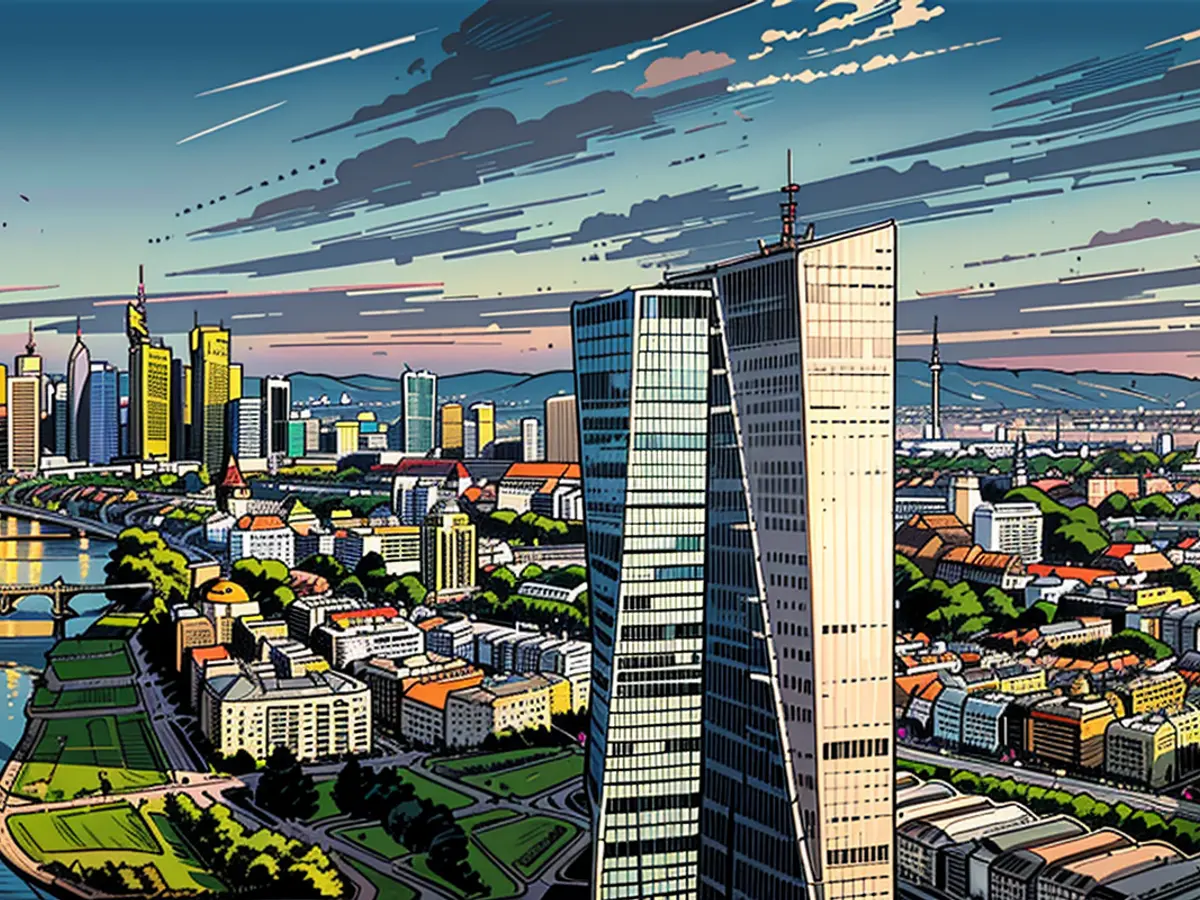Inflation in the euro area increases
Inflation in Europe continues to rise: Latest data from Luxembourg shows consumer prices moving up more strongly in July than in the previous month. Pressure is mounting on central bankers at the European Central Bank.
Inflation in the Eurozone has risen slightly in July: The inflation rate climbed to plus 2.6 percent compared to the previous year, according to a first estimate by Eurostat in Luxembourg. In June, the inflation rate was 2.5 percent.
In particular, energy prices have risen again recently. Energy product prices increased by 1.3 percent, according to preliminary data. They had been steadily falling in the year-to-date comparison until April - but this was due to special effects, mainly related to the energy price increase in the past two years as a result of the Russian invasion of Ukraine.
Services continue to record the strongest price increases. Statisticians recorded a price increase of 4 percent in this sector. Food, alcohol, and tobacco prices, on the other hand, increased by 2.3 percent in the year-to-date comparison, which is less than in June.
ECB Interest Rate Decision in September
Inflation in the Eurozone has been fluctuating around 2.5 percent for several months, and there is no clear downward trend yet. Observers therefore expect further measures from the European Central Bank (ECB). The central bankers' stated goal is to keep the inflation rate below 2.0 percent.
The next scheduled decision on the level of interest rates applicable to all credit transactions in the Eurozone is due on September 12, according to the ECB's calendar. ECB President Christine Lagarde has so far refused to commit to further interest rate cuts. "The question of what we will do in September is wide open," Lagarde emphasized in mid-July. This will depend on the data.
With persistent high inflation, the conditions for further interest rate cuts seem to be given. The central bankers in the Eurozone had lowered their relatively high interest rates by 0.25 percentage points each in June for the first time in nearly eight years. There was also criticism of this decision, with some experts considering it too early. At the ECB meeting in July, the key interest rate remained unchanged.
Germany and France have national inflation rates of 2.6 percent each, exactly in line with the average of the 20 Eurozone countries, according to Eurostat's calculations. Belgium currently has the strongest price increase, with consumer prices rising by 5.5 percent in July. The lowest inflation rates in the Eurozone were reported by statisticians from Latvia and Finland, with prices rising by 0.8 and 0.6 percent, respectively.
Eurostat uses a different calculation method for international comparability than the German Federal Statistical Office. The Wiesbaden agency had estimated the inflation rate in Germany in July at 2.3 percent in its own preliminary publication.
The persistent high inflation in the Eurozone, as evidenced by the ECB's interest rate decision in July remaining unchanged, has put pressure on central bankers to consider further measures. Influent factors such as rising energy prices and strong price increases in the services sector continue to contribute to the overall inflation rate, currently hovering around 2.6 percent.








